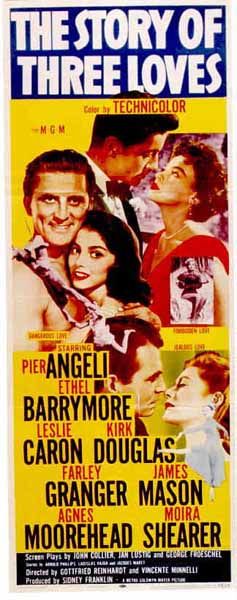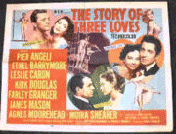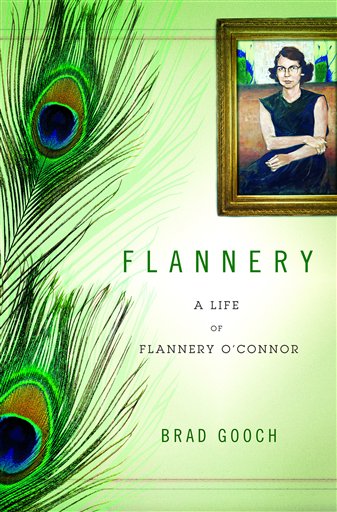From the Chicago Reader (September 14, 2007). — J.R.

Released in 1953, this glitzy, entertaining MGM art movie is fascinating partly because it testifies to the influence of patriarchal French existentialism on American pop culture. Gottfried Reinhardt (son of Berlin stage director Max Reinhardt) directed the first of its three episodes, about a ballet dancer with a heart condition (Moira Shearer) who’s driven to the breaking point by an enthusiastic choreographer (James Mason), and the third, a suspenseful tale about Parisian trapeze artists (Kirk Douglas and Pier Angeli) who learn to commit to one another in a post-Holocaust context by taking inordinate risks. But the best episode is Vincente Minnelli’s fantasy about a disgruntled boy in Rome (Ricky Nelson) who, with the help of an American witch (Ethel Barrymore), becomes a grown man (Farley Granger) long enough to date his French nanny (Leslie Caron). 122 min. (JR)
 Read more
Read more

FLANNERY: A LIFE OF FLANNERY O’CONNOR by Brad Gooch (New York/Boston/London: Little, Brown and Company), 2009, 449 pp.
So far, I’ve basically been reading in and around this book rather than reading it, so I can’t with a clear conscience make it “recommended reading”, at least not yet (something I can do for Wendy Lesser’s astute and very thoughtful review of it in a recent Bookforum). I can, however, pick a bone with what I consider a couple of significant omissions: neither the names “Nathanael West” nor “Stanley Edgar Hyman” appears in the Index. The latter, who wrote a superb monograph on O’Connor that was published in 1966 (no. 54 in the University of Minnesota Pamphlets on American Writers), argues rather persuasively (on p. 43) that the “writer who most influenced [O’Connor], at least in her first books, is Nathanael West. Wise Blood is clearly modeled on Miss Lonelyhearts (as no reviewer noticed at the time),” and then goes on to cite four examples of her prose that amply bear this out: “Hazel Motes has a nose `like a shrike’s bill’; after he goes to bed with Leora Watts, Haze feels ‘like something washed ashore on her’; Sabbath Lily’s correspondence with a newspaper advice-columnist is purest West; and all the rocks in Wise Blood recall the rock Miss Lonelyhearts first contains in his gut and then becomes, the rock on which the new Peter will found the new Church.” Read more
This very lengthy essay was assembled in 2013 out of several previous pieces of mine, but I no longer recall the occasion for it. — J.R.

Introduction
One of the problems inherent in using the term “cult” within a contemporary context relating to film, either as a noun or as an adjective, is that it refers to various social structures that no longer exist, at least not in the ways that they once did. When indiscriminate moviegoing (as opposed to going to see particular films) was a routine everyday activity, it was theoretically possible for cults to form around exceptional items — “sleepers,” as they were then called by film exhibitors — that were spontaneously adopted and anointed by audiences rather than generated by advertising. But once advertising started to anticipate and supersede such a selection process, the whole concept of the cult film became dubious at the same time it became more prominent, a marketing term rather than a self-generating social process.
Joe Dante deserves a special place in what I would call the post-cult cinema because he is one of the few commercial American directors I know who has refused to hire a personal publicist, and for tactical reasons — someone, in short, who chooses to be recognized at best only by initiates (that is, by fellow cultists or would-be cultists, his comrades-in-arms) rather than by the public at large. Read more




